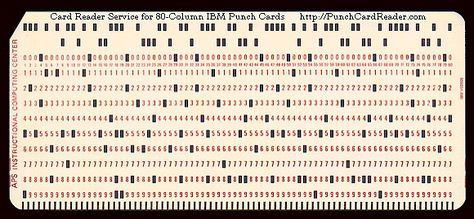The following is a Plus Edition article written by and copyright by Dick Eastman.
One of the more common arguments against saving things digitally is, “The equipment required to read it probably won't be available in 25 years.” Maybe the time frame is 50 or 100 years, but I hear remarks like this all the time. Yes, there is some validity to that claim. However, there is an easy fix.
Paper is not a good preservation medium, and microfilm is not much better, as recent experience has shown. Thousands of paper and microfilm documents have been destroyed in seconds by earthquakes, tsunamis, hurricanes, tornadoes, floods, building collapses, fires, and other natural calamities that are regularly mentioned in the news. Burst water pipes will also do the same, even though they aren't reported in the national news as much. Numerous instances of paper records harmed by mold, mildew, insect damage, and other issues are also available to us.
Microfilm was the preferred storage medium for the last fifty years or so since it required less room than paper. But microfilm is nearly as brittle as paper. The resistance of microfilm to earthquakes, tsunamis, hurricanes, tornadoes, floods, fires, and burst water pipes is just marginally greater. Granted, microfilm damaged in water may be preserved by washing and drying it, but microfilm will be destroyed by other disasters just like paper or anything else. Just running microfilm through a microfilm reader a few times scratches the original. Run it through a microfilm reader enough times and it becomes unreadable.
Digital archiving presents unique challenges and opportunities. Large data centers are periodically destroyed in significant disasters, disk drives collapse, household PCs occasionally wipe data, and information frequently become outdated due to changes in technology standards. It's likely that the "oops factor," or unintentional file loss, is the largest source of computer data loss. It is nearly a given that a single digital file will no longer be accessible in a few years.
To verify the issue with digital preservation, view an article written by Bill LeFurgy that appeared in The Signal, a Library of Congress newsletter regarding digital preservation, at http://goo.gl/h2rcC. LeFurgy details a poll conducted to find out how the Kennedy assassination affected citizens. From November 26 to December 3, 1963, the University of Chicago's National Opinion Research Center (NORC) conducted this poll. The survey findings were entered into a mainframe computer that was used to tabulate study data using paper punch cards. The results were then published in summary form.

In order to gauge public response, NORC researchers intended to repeat the 1963 study by posing similar queries to the public after September 11, 2001, another national tragedy. The comparison of the country's reactions to these two radically different catastrophes was the goal. One issue remained: how to decipher the punched cards from the research conducted in 1963? There were still the 38-year-old stacks of 80-column punch cards accessible, but the challenge was getting card readers to read that data.
The remainder of this article is reserved for Plus Edition subscribers only. If you have a Plus Edition subscription, you may read the full article at: https://eogn.com/(*)-Plus-Edition-News-Articles/13339613 (A Plus Edition password is required to access that article.)
If you are not yet a Plus Edition subscriber, you can learn more about such subscriptions and even upgrade to a Plus Edition subscription immediately at https://eogn.com/page-18077.
 Latest News Articles
Latest News Articles If you do not see a Plus Sign that is labeled "Add comment," you will need to upgrade to either a (FREE) Standard Edition or a (paid) Plus Edition subscription
If you do not see a Plus Sign that is labeled "Add comment," you will need to upgrade to either a (FREE) Standard Edition or a (paid) Plus Edition subscription